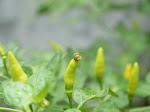Hope for Lake Fishers Coming
Digong was right.
Fishing area access of small fishers have long been impinged by
the operation of fish farming activities in all lakes. Laguna lake is the biggest example. Every time we fly out of Manila, the
issue of inequity of fishing access stares upon us. The area of fish pens cover
just 25% of the lake, so the argument of the LLDA goes, but the area of that 25% is what used to be the main fishing grounds of the small scale fishers. It is the area
that blocks the path of fishers to their fishing grounds. It is the area that is important for the
indigenous fish species in order to complete its life cycle. It is also major source of
conflict where many fishers have died in pursuit of claiming their traditional fishing ground that one day was fenced off and guarded by heavily armed guards.
Impacts
Sadly, the laguna lake fisheries mirrors how our country’s
fisheries resources have been mismanaged all along. Similar to Taal, Sampaloc, Lake Buhi and the
rest of Philippine lakes, fish pens, fish cages and other fish farming have
overrun the use of these lakes and on the process, displaced the small scale
fishers of their fishing grounds, deprived them of their livelihood. The impact
is catastrophic. The great abundance of the traditional fish species are now rarely caught. In its place include the invasive species such as tilapia, janitor fish, the knife fish. These species have all but eaten
up the tasty native fishes such as ayungin,
hito, dalag, puyo and guorami.
Taal lake is another fitting example of how not to manage
lake fisheries. Tawilis, yes that famous fresh water sardines, is a delicious
fish and with high value. Its production in the 1970s and 1980s hovers around
70,000 thousand tons. In 2012, its production is barely 100 metric tons. It was
replaced by culture of tilapia in cages producing a meager 50,000 tons per
year. It gained notoriety when the lake ecosystem collapsed as a result of
culturing more fish beyond the lake capacity to cleanse itself. The economic loss was
massive, fish kills fouled the whole region and
impacting even the thriving tourism industry.
Misplaced Priority?
The local government are tasked to managed the resources but
has no idea on how to balance development with maintaining the environment. The
immediate impacts are with the poor fishers. If the tawilis production were
maintained, the value generated from tawilis fisheries will dwarf the tilapia
production from the lake and the environment of Taal lake will have remained
pristine.
But why did the local government allow it to happen?
Greed. Ignorance or Both. Fish farming are businesses and
LGUs get revenues from business permits and taxes. But if we take the value of
lost livelihood, amount of subsidies that LGUs give to support the poor fishers,
and the value of loss of ecosystem function will be staggering.
It is a no brainer. Wild capture, when properly managed,
will enable fishers to live way above the poverty threshold for generations. No
fish farming, no matter how efficient, can replace the benefits coming from
well managed capture fisheries. It is
sad to note that when fisheries collapses, fish farming is promoted to replace
food production instead of investing on rebuilding them.
Why?
Because fisheries bureaucrats are evaluated not how the
fisheries is performing but through increase in production, often at the
expense of the environment.J
Today, similar to
Laguna lake, fish cages occupy large areas of the lake, depriving local fishers
the sufficient area where tawilis could grow in abundance. Escapees of tilapia
and introduced catfish called Pangasius (market name: cream dory), feed on
tawilis and the wild capture fisheries of the lake has become more of tilapia
and catfish fisheries.
Unless we do drastic measures, these lakes will all die from
pollution arising from bad culture practices. The tawilis and the ayungins will
disappear from our plates, depriving us of our culture eating our staple food consisting of rice and fish coming from our lakes. BFAR has set standards for culture but business permits are given by LGUs without due regard
to the negative impacts of overproduction. Monitoring of these farms against this standards are yet to be undertaken. Sadly, its always the poor wild
capture fishers that are impacted by this bad practice.
With the directive of President Digong to give back their fishing grounds, brings ample hope that with proper management of the capture fisheries, poverty among lake fisherfolks will be a thing of the past.
